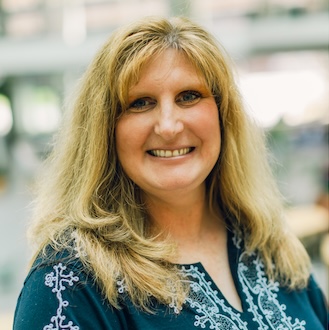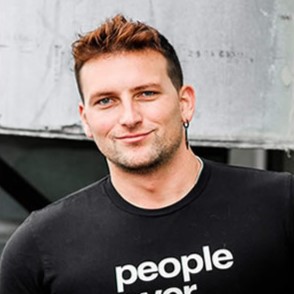Student Spotlight: Rebecca Clancy
Mar 30, 2020/chwe-newsroom/rclancy-(1)-(1).jpg?sfvrsn=8ab2c0b9_4)
When you think about occupational safety and health (OSH), what comes to mind? For some of us, we immediately think of OSHA regulations, personal protective equipment (PPE), and workplace ergonomics. For Mountain and Plains Education & Research Center (MAP ERC) trainee Rebecca Clancy, she admits to once sharing this narrow view of OSH. Prior to starting the Occupational Health Psychology (OHP) program based at Colorado State University, Rebecca acknowledges, “I did not have a good sense of what types of jobs were available in the field or the diversity of graduate training programs available. I was searching for how I could use my background in psychology to improve employee health and well-being.” Now, nearing the end of her third year in the MAP ERC, Rebecca can confidently say that her understanding of OSH has been expanded and her direction in the field defined.
How did Rebecca find her way to the MAP ERC’s OHP program? From a young age, Rebecca knew she wanted a career where she could help people (although the job titles she considered changed on a weekly basis). “I became interested in the field of OSH as a way to improve employees' experiences at work,” Rebecca says. As her education continued, Rebecca realized that not many OSH professionals were focusing their efforts on initiatives related to mental health and work. This realization piqued her interest in the field and presented exciting questions. What could OSH professionals be doing to reduce the likelihood of employees struggling with burnout, anxiety, and depression at work? What could researchers and professionals be doing to change the work environment (or the work itself) to better promote overall health and well-being? What resources could researchers and professionals provide employees to help them better cope with their mental health? “I sought out graduate training in industrial and organizational psychology (I/O) and OHP to gain the skills and opportunity to help people in all of these different ways at work.”
Rebecca was drawn to the MAP ERC as a place to pursue OHP based on its interdisciplinary education and training practices. “I wanted the opportunity to be exposed to students in other occupational health and safety disciplines, including ergonomics, industrial hygiene, health physics, and occupational medicine,” says Rebecca. “As an OHP student, I was particularly excited about the MAP ERC as it is only one of two NIOSH-funded education and research centers in the country that has an OHP training program.”
(Drs Gwen Fisher and Lee Newman, Rebecca Clancy, Magda Castrillo, and Diana Jaramillo in Nicaragua)
Last year, Rebecca had the opportunity to work alongside MAP ERC Director, Dr. Lee Newman, and researchers Dr. Gwen Fisher, Lyndsay Krisher, and Diana Jaramillo on our center’s Total Worker Health® (TWH) project in Latin America. The project centered on a multi-year partnership with Pantaleon, a major agribusiness operating in Guatemala, Nicaragua, and Mexico. Rebecca conducted focus groups with management to understand TWH practices at the company and develop key recommendations to inform TWH leadership trainings. “The most important lesson I learned from this experience came from watching Dr. Newman interact with employers and managers,” she says. “Initially, I struggled with translating research into practice and avoiding the use of jargon. However, Dr. Newman coached me on how to make our evidence-based recommendations more approachable to employers and workers from a variety of backgrounds.”
Rebecca has gained many important insights from the interactions she had with workers and businesses during her MAP ERC training. “In working with local and international organizations, I found that employees often don't realize what they can and should expect from their workplace in terms of OSH. From my training in OHP, I have learned that teaching employees at all levels of an organization how to protect and promote their health and safety at work is often extended to behaviors and practices outside of work as well. Training workers often positively impacts families and larger communities when information is shared and behaviors are modified.”
Rebecca credits her MAP ERC interdisciplinary training and mentorship with teaching her to challenge the status quo and seek solutions for inefficiencies, risks, and challenges at work that may not even be formally recognized as problematic. “This mindset has been instilled in many of the MAP ERC trainees,” she says. “We will have the ability to collectively advance the field of OSH safety with this approach.” Looking ahead, Rebecca plans to pursue a career in consulting or applied research and hopes to work in a role that is directly related to protecting and promoting employee health, safety, well-being, and engagement.
Written by Laura Veith, Marketing & Communications Coordinator at the Center for Health, Work & Environment based at the Colorado School of Public Health.




